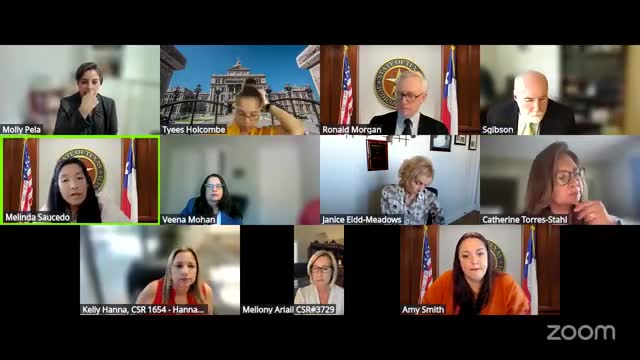Advisory board favors streamlining discipline when one act triggers multiple ethics subsections
Get AI-powered insights, summaries, and transcripts
Subscribe
Summary
The advisory board discussed whether investigators should 'stack' multiple similar violations arising from a single act and signaled preference for treating closely related subsections as a single rule violation while preserving avenues to address distinct misconduct.
The JVCC advisory board on Oct. 10 discussed how investigators and the board should treat instances where a single act may fall under multiple similar ethics subsections.
Melinda Saucedo, the JVCC compliance manager and investigator, said staff frequently encounter conduct that could be cited under several adjacent subsections — for example, parts of a code of ethics rule addressing professional behavior in court — and asked whether the board prefers listing each subsection or treating the conduct as a single rule violation.
"There are sometimes that we have violations that will fall under extremely similar, statutes or codes ... if we have, for instance, a court reporter who blurts out or who is rude to the parties ... technically they fall under each one of those subsections," Saucedo said while asking the board for guidance.
Several board members urged a streamlined approach. "Where we have multiple violations, one act that constitutes multiple violations, we tend to ... curtail it a little bit," said Molly (board member). Members recommended citing the overarching rule (for example, "violation of rule 5") rather than enumerating every subsection unless a specific subsection is the focal misconduct.
Janice (board member) added that subsections are often intertwined and that listing the main rule can reduce time spent drafting recommendations and reduce confusion for regulated professionals. Janice suggested that when necessary the board could specify a subsection or list a range ("5(a)–(c)") to be informative without creating an appearance of excessive punishment.
Board members emphasized corrective action and education as primary goals. Ron Morgan of OCA told the group that OCA staff and investigators welcome opportunities to speak with professional associations and to provide guidance to help avoid future disciplinary matters.
The board did not adopt a formal rule change at this meeting, but members signaled consensus support for streamlining violation lists in staff recommendations, focusing penalties on the conduct's core rule violation and using corrective measures where appropriate. Members also asked staff to continue providing detailed reports to the board for review and to consider whether rule-language revisions could reduce overlap and administrative burden.
No formal disciplinary orders or sanctions were issued during the discussion; the item was advisory guidance for investigators and the review committee.
